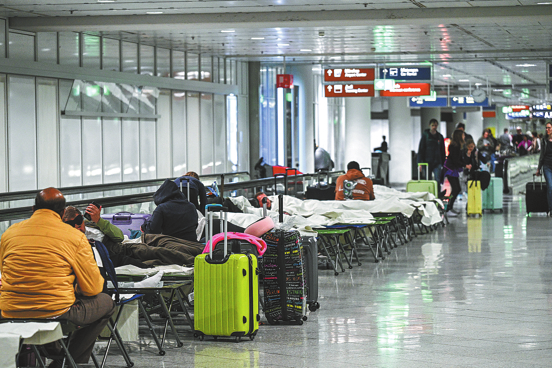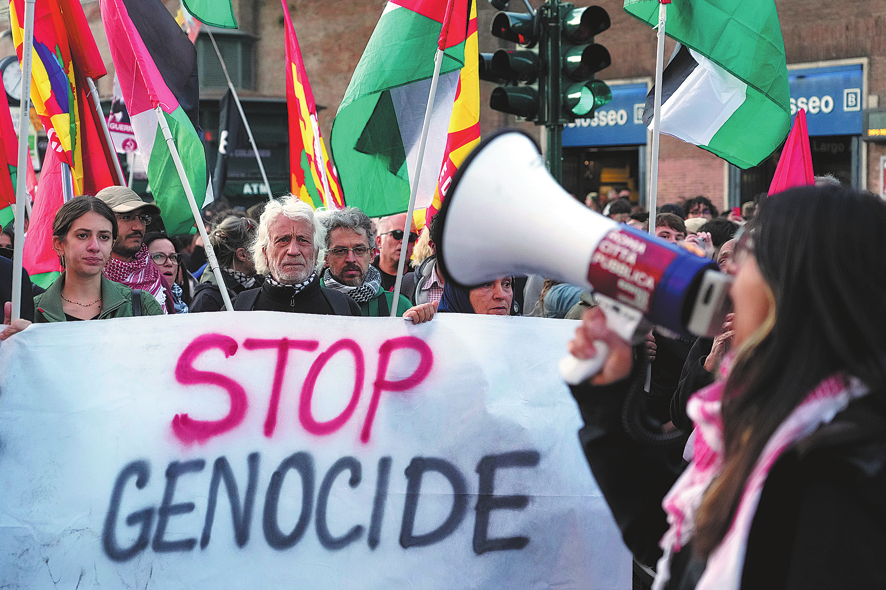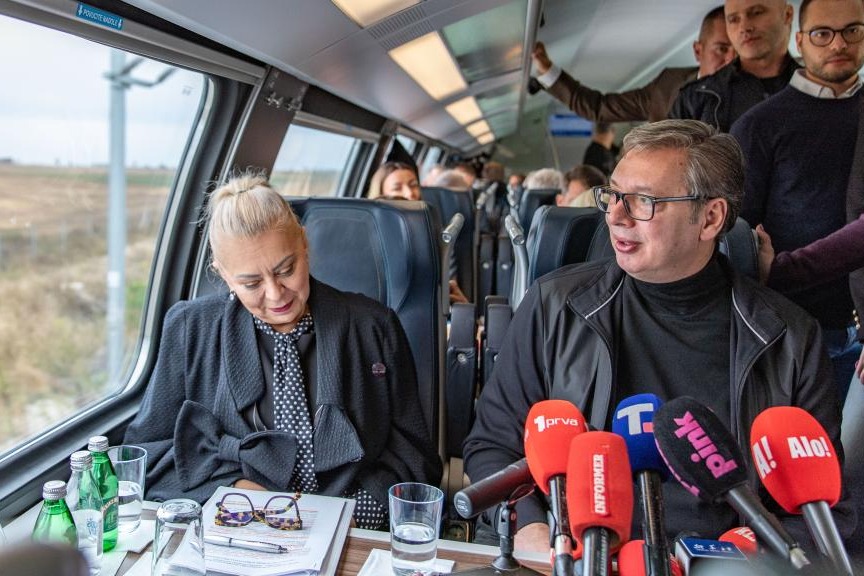Gaza conflict: Two years of devastation and dim prospects ahead


CAIRO - As Hamas and Israel are meeting in Egypt over a potential ceasefire the world anxiously awaits, Gaza marked the grim second anniversary of the conflict on Tuesday.
Over the past two years, what began as a cross-border attack by Hamas has, under the weight of political brinkmanship and superpower indulgence, snowballed into one of the world's deadliest conflicts in recent memory, adding yet another open wound to a region already scarred by conflicts and grievances.
Despite the ongoing peace talks, analysts warn that as long as the core rights of the Palestinian people are sidelined, enduring peace in the Middle East will remain little more than a pipe dream.
From the moment Hamas crossed the Israeli border on Oct 7, 2023, cracking open a geopolitical Pandora's box, Israel has waged war in the name of vengeance -- unleashing its military might from the shores of the Mediterranean to the Persian Gulf.
As the epicenter of this regional earthquake, Gaza has suffered most acutely.
According to Gaza-based authorities, over 90 percent of Gaza's infrastructure has been destroyed by Israeli airstrikes. More than 67,000 Palestinians have been killed -- the vast majority of them being civilians, women and children -- and 169,000 more wounded.
The enclave has become a "living hell," as UN Secretary-General Antonio Guterres described it. "The scale of death and destruction are beyond any other conflict in my years as secretary-general."
But the reach of the Israeli "war of revenge" has not stopped at Gaza's edge. As the assault on the strip continues, Israel has launched direct military strikes on targets in Yemen, Lebanon, Iraq, Iran, Syria, and Qatar, entangling itself in a multi-front conflict across the region.
Though Israel appears to have chipped away at what it deems threats in the region, analysts say the "war of revenge" has also taken a heavy toll on the country.
According to official Israeli figures, thousands of Israelis have been killed since the conflict between Hamas and Israel began. Dozens of hostages taken by Hamas during its initial assault remain in captivity, despite Prime Minister Benjamin Netanyahu's early promise to bring every one of them home.
Meanwhile, the humanitarian crisis unfolding in Gaza has drawn mounting international condemnation. Sympathy for Palestinians, coupled with disillusionment over Israeli policies, has fueled a growing wave of countries formally recognizing a Palestinian state.
In September, Britain, Canada, Australia and France, among other Western nations, announced their recognition of the State of Palestine, a diplomatic move widely interpreted as a rebuke to Israel's prolonged military campaign.
"The war in Gaza grinds on, the humanitarian catastrophe deepens, Israel's legitimacy erodes, and the region braces for further instability," Roee Kibrik, head of research at Mitvim, the Israeli Institute for Regional Foreign Policies, told Xinhua. "This is a war with no winner."
At the heart of the Gaza conflict's protraction, analysts say, lie two powerful forces: Israel's own domestic political calculus, and the extensive support of the United States.
From the earliest days of its "war of revenge," Israel laid out three primary objectives: the return of all hostages, the dismantling of Hamas' military and political apparatus, and ensuring that Gaza can never again threaten Israel.
Two years on, Gaza lies in ruins and yet none of those goals have been achieved.
Experts suggest this is no accident as the declared objectives were never truly the priority. According to Eyal Zisser, vice rector of Tel Aviv University and a Middle East affairs expert, the "war of revenge" has actually been used by Netanyahu to shore up his political position and preserve his far-right governing coalition.
In August, when asked in an interview whether he felt connected to the "Greater Israel" vision, Netanyahu responded: "Very much."
The so-called "Greater Israel" refers to an expansionist vision that lays claim to not only the occupied West Bank and Gaza, but also parts of Lebanon, Syria, Egypt, and Jordan, a geopolitical map that reaches far beyond Israel's borders.
For Refaat Badawi, a political analyst and a former presidential adviser in Lebanon, Netanyahu's remarks signal that "Israel aims to redraw the maps of the Middle East in a way that serves the Israeli goal of expansion in the Middle East."
Beyond Israel's own political maneuvering, the United States has provided unconditional support to Israel throughout the Gaza conflict.
According to Israeli official data from May, Washington delivered 90,000 tons of weapons to Israel between October 2023 and May 2025.
In addition to military aid, the United States has leveraged its superpower status to shield Israel politically, disregarding widespread international opposition and condemnation.
In the UN Security Council, the United States has used its veto power six times to block Gaza-related resolutions calling for a ceasefire, throwing a wrench into international efforts to halt the bloodshed.
"Washington's repeated vetoes at the UN Security Council have shielded Israel from international accountability. At the same time, US financial and military aid sustains Israel's war effort," Mohammed Osman Ali, managing editor of Qatar's The Peninsula newspaper, pointed out.
Under global gaze, Hamas and Israel are engaged in indirect negotiations centered on a 20-point ceasefire plan in Gaza put forward by US President Donald Trump.
Trump has hailed the proposal as a "critical step" toward lasting peace, while threatening that Hamas' refusal could lead to "complete obliteration."
Though Israel has accepted the plan and Hamas has offered a cautiously positive response, major questions remain about whether it can truly bring peace to Gaza.
The proposal demands the total disarmament of Hamas, striking at the heart of the group's survival. Meanwhile, the plan sidesteps any mention of implementing the two-state solution, which is widely regarded as essential for durable peace in the region.
It also fails to address accountability or reparations for the deaths and destruction wrought in Gaza during the two years of brutal conflict.
Despite the flaws in the plan, both regional countries and the people of war-torn Gaza are still clinging to a sliver of hope that the ongoing negotiations could be the faint light at the end of the tunnel.
"The people of Gaza are not seeking a military or political victory," said Ismail Abu Shar, a resident of Deir al-Balah in central Gaza. "We just hope the talks will mark the beginning of the end of the massacre and the war of extermination."
As for the prospects of lasting peace in the Middle East, analysts have offered a more sober assessment.
"Even if Gaza quiets down, conflicts and animosities in Lebanon, the Red Sea, and the West Bank remain unresolved," said Hussam al-Dajani, a Palestinian political analyst based in Gaza.
"The flames are still burning, the deaths continue, and the war's impact has long since spilled beyond Gaza. This means the Middle East is hurtling toward greater instability and chaos," he said.

































